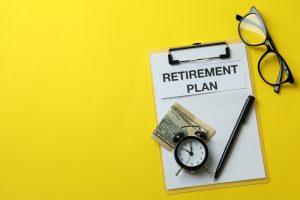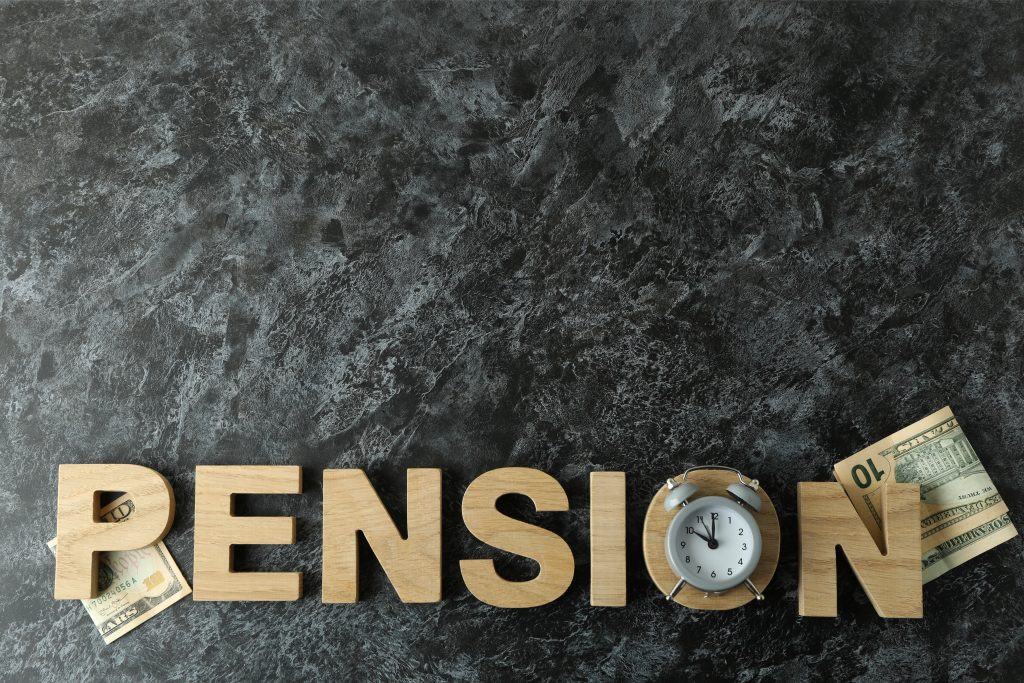The average person dreads the question of “What will you do and how will you survive when you retire?” But what if you didn’t have to worry about retirement? What if your employer had a plan in place for your future livelihood?
It’s possible through a pension plan! So, let us explain how pension plans work and who they are available to. Keep reading if you want to learn more about pension plans.
What Is a Pension Plan?
In simple terms, a pension plan is a retirement plan that your employer sets up for you. It’s very similar to a 401(k) in the way it works, but instead of operating your own personal account, several people (employees) contribute to one large fund.
The money is set aside over time and slowly grows until it reaches its maximum limit. At this point, everyone who has contributed to the plan can benefit.
The primary purpose of pension plans is to guarantee income to employees after they retire. They are also known as defined-benefit plans because the monthly benefits you will receive after retirement are pretty defined.
The idea of pension plans has been around since the late 1800’s when the Prudential Insurance Company in America started offering its employees this retirement plan.
However, it wasn’t until the Great Depression that pension plans became very popular with companies because they could not afford to pay their staff any other way once they retired.
Pension Plans vs. 401(k) Plans
Many people think of a 401(k) as a pension plan. However, there are many differences between these two retirement vehicles.
The main difference is who manages them and how they work. Pension plans are managed by companies that set them up for their employees, whereas 401(k)s can be organized through an employer or on your own as an individual.
Another notable difference is that 401(k) plans are not guaranteed like pension plans. Over time, this can mean your retirement savings will grow, or they could shrink depending on the market and other factors. There’s no way to know for sure how much you’ll make with a 401(k) plan until after it has been accumulated over many years.

In contrast, pension plans offer a guaranteed monthly benefit to retirees. The benefit is usually determined by the employer who sets up the plan.
If you have been involved in a company or public sector for at least five years and are over 55 years of age, then you could be eligible to receive your benefits from this type of retirement vehicle even if it’s not officially in your employment contract.
Who Needs to Know About Pension Plans?
If you are an employee, then the answer is pretty simple. You should be aware of your pension plan benefits if you want to make sure you have enough money in retirement! If it’s not written in your contract or agreement when hired, ask about it.
It’s also crucial for employers, who need to think about how they will fund their employees’ retirement when they retire.
However, pension plans are not just for workers. They’re also available to the self-employed who want a secure income in old age.
If you have at least five years of experience running your own business or freelancing, then you can set up a defined-benefit plan with an insurance company and receive a monthly income for as long as you live.
If you’re unsure where to start, we recommend speaking with an insurance professional who can help explain how the plan works and what financials need to be set up to make it work.
What Are the Benefits of a Pension Plan?
When you have a pension plan, the most obvious benefit is money in your retirement fund. However, there are other benefits worth mentioning as well.
One of these perks is that a company’s contributions to your pension don’t count towards income tax. In fact, they’re considered an asset and not taxable until the time for withdrawal.

Another benefit is that there are no limitations on how much money you can contribute to your pension plan. As long as the employer has enough cash flow, they are free to put more into your retirement fund.
Pension plans also offer security and peace of mind because you know that the money in this account cannot be lost or stolen.
What’s the Downside of Pension Plans?
First, you must be employed with a company for at least five years to receive this retirement plan. If your employment history is shorter than that or if it has been interrupted by other jobs, then you may not qualify and should consider another option to save money for retirement.
Another downside of pension plans is that the payout only starts once you reach retirement age. This means if you can’t afford to live off your current income, then it may not make sense for you to set up this retirement account.
Finally, there are limits on how much money can be put into a defined-benefit plan each year. If your employer cannot contribute enough, you could miss out on a significant amount of money that would have been put in.
Is It Too Late for Me If I Don’t Have One Already?
If you are under the age of 55, there is still time to set up a defined-benefit plan. Since this type of retirement vehicle is considered an asset that does not have any income tax implications, it’s best for those who do not need immediate access to their money.
While pension plans aren’t as popular today as they were in the past, they are still a valuable asset to have in your financial portfolio.
It’s essential for those who want some level of security and assurance about being able to retire on a set income that won’t be subject to market fluctuations or inflation.

If you’re not confident that you’ll be able to save enough money yourself, then this type of retirement vehicle can be a great way to supplement your income and ensure you don’t outlive your money in retirement.
While there are some downsides of pension plans, they do offer many benefits. Not only will this help an individual retire on time with enough saved for their future, but it also provides peace of mind that the funds won’t be lost or stolen.
So, even if it’s too late for you to set up a pension plan by your current employer, there are still options available.
How Can I Make Sure That My Future Employers Will Offer Me This Type of Retirement Plan?
If you’re looking for an employer who can provide this type of financial stability in retirement, then make sure you ask if they have a pension plan available. If not, you may want to consider a different location that has this type of financial vehicle for their workers.
If you already have an employer who offers a defined-benefit plan, but it doesn’t quite match up with what your retirement needs are, then there is nothing wrong with trying to negotiate something better. While the company sets the guidelines and limits for this type of plan, they will still listen to what you say and make a fair decision.
While this may not be the case for every company, it is worth trying if you think your current employer can’t provide enough money in retirement. After all, even billionaires like Warren Buffet had humble beginnings when they first started out!
Final Thought
After reading this post, we hope you now have answers to some of your burning questions about pension plans and how they work! The next step may be figuring out whether this type of retirement vehicle is the best option for your own situation.
If you don’t know where to start, we recommend speaking with our retirement planning experts who will assess your current income and advise you accordingly.



